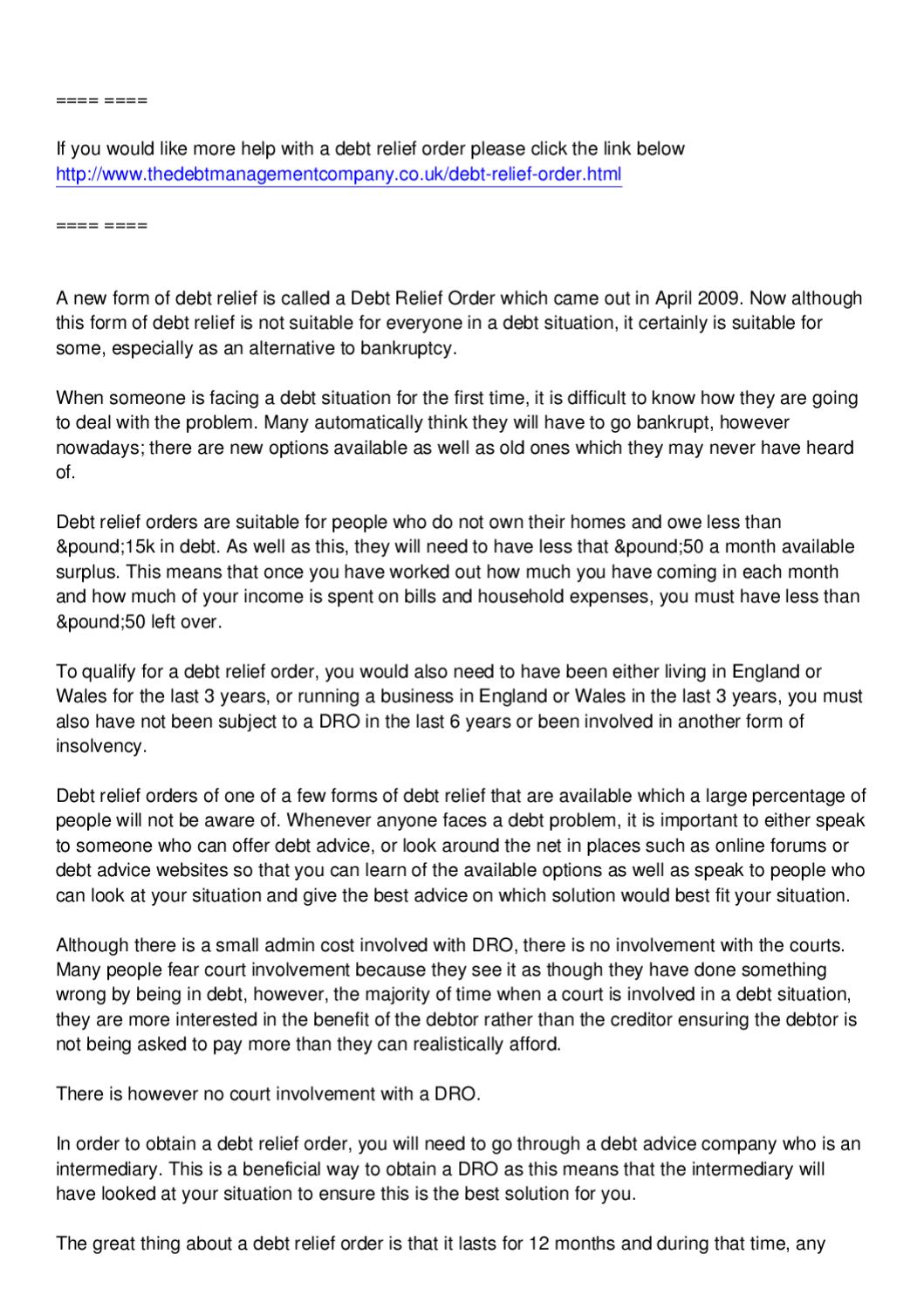What Happens If You Take Out a Debt Relief Order?

Having a debt relief order is a way to protect yourself from creditors. It will prevent your creditors from chasing you for your debts, and it will freeze interest on your named debts. However, the order will also restrict you. For example, you cannot act as a company director, promote a limited company, or write cheques that may bounce. In addition, you cannot take out a new loan or overdraft, and you will not be allowed to borrow more than PS500.
You will need to disclose information about your assets. For example, you will not be allowed to borrow more than the value of your home. You may be asked to return any hire purchase goods. You also must tell your bank or building society about any new accounts you open. If you borrow more than PS500 without telling the lender, you can lose your DRO.
The official receiver will either approve or reject your application. They will send you a letter to let you know why. They will also let your creditors know about the debt relief order. If the official receiver approves your application, the order will be added to the Individual Insolvency Register. The register is accessible by anyone in Wales. If your application is rejected, you will be told why and advised about any alternative options.
Despite the fact that you will be debt-free, you may struggle to get a new rental agreement. Landlords can still start eviction proceedings if tenants fail to pay their rent. However, if you are a tenant in social housing, you can seek help from a tenancy support officer.
If you are a property owner, you may have an Insolvency Clause in your tenancy agreement. If you break the Insolvency Clause, your landlord can take you to court. If you decide to take out a debt relief order, you could break the Insolvency Clause, which could mean that you are evicted.
Your credit rating will also be affected. Credit reference agencies will include a DRO on your credit record for at least six years. You may be able to get credit again after you have paid off all of your debts. However, you should check your credit rating regularly. If you have a debt relief order, you may find it difficult to get credit, and it can also affect your employment in the financial sector.
If you have been refused credit, you can seek advice from a debt adviser. You can find an authorised debt adviser through your local Citizens Advice service, or through the UK Government’s list of approved debt advisers. They will check that you meet all of the criteria for a debt relief order and will help you apply for one.
You can get a debt relief order only if you have lived in England or Wales for three years or more. You must also have had regular income to meet your debts. You will also need to disclose any assets you own, including your home.
What Happens If You Take Out a Debt Relief Order? was first seen on Help with My Debt
